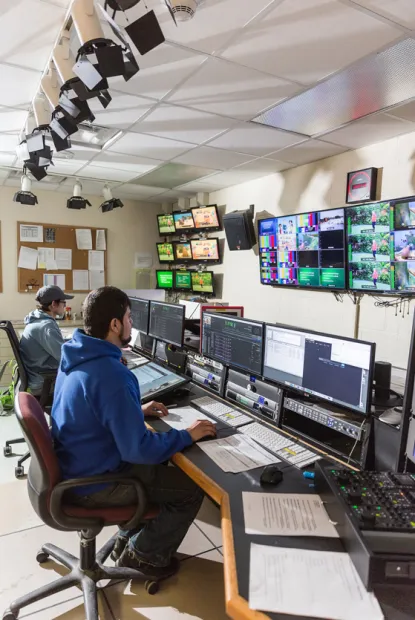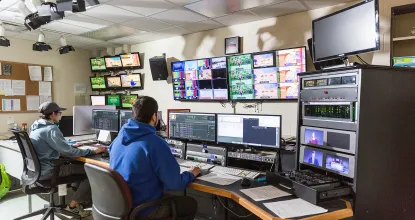
Communication empowers us to remember the past, act in the present and anticipate the future. It is the vehicle by which we manage relationships with others in contexts ranging from one-to-one to one-to-many using personal, public and mass-mediated channels of communication. The disciplines represented in the Communication and Media Studies Department have developed a body of knowledge concerning verbal and nonverbal symbols that are spoken, enacted, heard and seen. The department covers three major areas of study and four minors and also serves the skill development needs of students who wish to learn to communicate more effectively.
The world of communications and media is moving fast and changing all the time. The disciplines represented in the Communication and Media Studies (CAMS) Department share a focus upon understanding how messages are used to manage relationships with others in contexts ranging from "one-to-one" to "one-to-many" using personal, public and mass-mediated channels of communication. Our state of the art studios, labs and faculty have the knowledge and experience to prepare students for today’s toughest communication challenges and are here to engage and challenge students with every interaction.
Although the goals for different majors may flow from specific arenas and methods of social interaction or performance, graduates of CAMS programs share a fundamental appreciation for what it means to live in a symbolic world, to engage in life-long learning, and acquire a suite of skills that can be transferred to a wide array of careers related to analytical research to health and environmental communication to intercultural (social), interpersonal and/or organizational relationships. To sum it up, students majoring in CAMS learn to critically examine the role communication plays in daily life. They learn to embrace the multicultural foundations for human discourse, to work in teams as well as independently regarding the application of communication concepts to practical situations, and to use what they have learned in the practice of civic engagement.







